Estimated reading time: 8 minutes
Have you ever walked into your bedroom only to find your cat has left a smelly surprise on your bed? Let’s dive into why your feline friend might be turning your bed into their personal litter box and how you can help them kick this unpleasant habit.
In this article, we’ll delve deep into the possible causes of this quirky cat behavior, ranging from health concerns to environmental triggers, and give practical solutions to help restore harmony in your home.
Key Takeaways
- When your cat poops on your bed, it could be due to illness, stress, or issues with their litter box.
- Common health problems that can cause cats to defecate outside the litter box include IBS, cancer, and intestinal parasites.
- Stressful situations like big changes in the home or long periods of absence can also make cats poop on the bed. Reduce stress by providing a calm environment with toys and scratching posts.
- Keep the litter box clean and provide multiple boxes if you have more than one cat. Choose litter that your cat prefers and ensure the size and accessibility of the box are suitable.
Possible Reasons Why Cats Poop on the Bed
Illness
Your cat pooping on the bed could be a sign they are sick. Health issues like Irritable Bowel Syndrome (IBS), cancer, or worms can make cats choose unusual places to do their business, like your bed.
When cats have these problems, they might not reach the litter box in time or avoid it because it’s painful to use.
Alongside serious conditions, your cat could be dealing with simpler stomach issues like diarrhea or constipation. These troubles can also lead to accidents on your bed.
It’s important to see a vet if you notice this behavior. The vet will check your cat and might run tests to find out what’s wrong. Remember, your vet is there to help your cat feel better and get back to using the litter box.
Stress
Cats feel stress too. Big changes in the home, like a new pet or a move, can make your cat stressed. Your cat may poop on your bed to say she’s not happy. This is also true if you leave her alone for long periods of time, leading to separation anxiety.
Stress can push cats to pee or poop outside the litter box more often than usual. It’s how they deal with hard feelings.
If your normally clean feline starts to leave a pile of cat poop on the bed, it could be stress saying hello! Keep things calm at home for a happier and cleaner kitty.
Litter Box Issues
Cats love clean spaces. If the cat litter box is dirty, they might poop on the bed. A tiny box or one that is hard to get into can also cause trouble. The type of litter plays a part too.
Some cats don’t like the feel of certain types under their paws and will avoid using it. Always keep the kitty’s box tidy and make sure it fits them well to stop this issue.
Changes in Routine or Environment
Changes in routine or environment can sometimes cause a cat to poop on the bed. Cats are creatures of habit, and any disruption to their daily routine or a significant change in their environment can lead to stress and anxiety.
This stress may cause them to seek out new places to relieve themselves, including your bed. It’s important to understand that cats are sensitive to changes in their surroundings, so even seemingly small adjustments like rearranging furniture or introducing a new pet can affect their behavior.
By providing your cat with stability and consistency, you can help reduce the likelihood of them pooping on your bed.
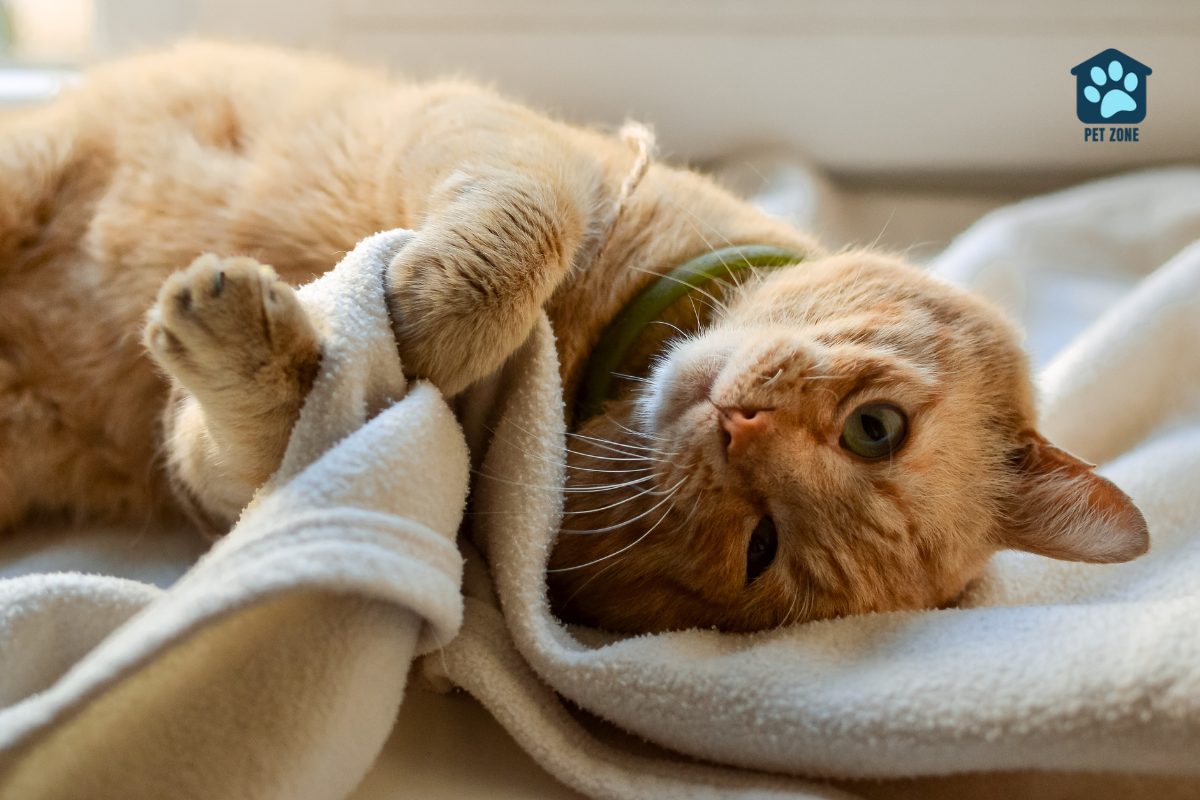
Solutions for Dealing with a Cat Pooping on the Bed
To address a cat pooping on the bed, it is crucial to first identify any underlying health issues and make necessary changes to the litter box. Additionally, reducing stress for the cat and consistent cleaning and maintenance of the litter box are important steps in resolving this issue.
Read more to discover effective solutions for dealing with a cat pooping on your bed.
Address any underlying health issues
If your cat pooped on your bed, it’s important to address any underlying health issues. Here are some steps you can take:
- Take your cat to the vet for a thorough check-up. Illnesses like irritable bowel syndrome, cancer, or intestinal parasites can cause cats to poop outside the litter box.
- Follow your vet’s advice and give any prescribed treatments or medications. This will help keep your cat’s health in check and reduce the chances of them pooping on your bed.
- Make sure your cat has a clean bill of health before assuming it’s just a behavioral issue.
- Regular grooming is important for cats, as poor hygiene can lead to gastrointestinal problems. Brushing their fur regularly and keeping them clean and groomed can help prevent digestive issues.
- Consult with your veterinarian about dietary changes if necessary. Sometimes, adjusting your cat’s diet can improve their digestion and reduce the likelihood of pooping on the bed.
Make necessary changes to litter box
To prevent cat poop on your bed, it’s important to make necessary changes to their litter box. Here are some tips:
- Keep the litter box clean: Cats are clean animals and prefer a tidy litter box. Scoop the litter box daily and change the litter regularly to ensure it stays fresh.
- Provide multiple litter boxes: If you have multiple cats, it’s essential to have more than one litter box. The general rule is one litter box per cat, plus an extra one. This will give each cat their own space and reduce the likelihood of accidents.
- Choose the right type of litter: Cats have preferences when it comes to litter. Some prefer clumping litter, while others like non-clumping or crystal litter. Experiment with different types to find what your cat prefers.
- Size and accessibility of the litter box: Ensure that the size of the litter box is appropriate for your cat. It should be big enough for them to turn around comfortably. Also, make sure it is easily accessible for your cat, especially if they are older or have mobility issues.
- Location of the litter box: Place the litter box in a quiet and private area where your cat feels safe and secure. Avoid placing it near noisy appliances or in high-traffic areas.
- Address any factors causing stress: Stress can lead to inappropriate elimination behavior in cats. Identify any potential sources of stress in your cat’s environment and try to address them accordingly.
Reduce stress for the cat
To prevent your cat from pooping on your bed, it’s important to reduce their stress levels. Here are some ways to do that:
- Provide a calm and quiet environment for your cat, with designated areas for resting and hiding.
- Increase playtime and provide toys and scratching posts to keep your cat engaged and entertained.
- Avoid sudden changes in routine or environment, as this can cause stress for your cat.
- Use pheromone sprays or diffusers designed specifically for cats to promote a sense of security and reduce anxiety.
- Ensure there is enough space and resources for each cat in multi-cat households, as competition can lead to stress.
- Consider consulting with a veterinarian or animal behaviorist for additional guidance on managing stress in your cat.
Consistent cleaning and maintenance of litter box
Keeping your cat’s litter box clean is essential for preventing litter box issues and ensuring your cat uses it consistently. Here are some important tips for maintaining a clean litter box:
- Scoop the litter box at least once a day to remove any clumps or solid waste. This helps keep the box fresh and prevents odors from building up.
- Completely change the litter in the box every 1-2 weeks, depending on how many cats you have. This ensures a clean and inviting environment for your cat.
- Use unscented litter that appeals to your cat’s preferences. Cats have sensitive noses and may be deterred by strong scents.
- Ensure that the litter box is large enough for your cat to comfortably move around in. The size of the box should be appropriate for the size of your cat.
- Place the litter box in a quiet and easily accessible area where your cat feels safe and comfortable using it.
- If you have multiple cats, provide one litter box per cat plus an extra one to prevent competition and reduce stress.
- Consider using a covered litter box to provide privacy for your cat, but make sure it is well-ventilated.

Conclusion
If your cat is pooping outside the litter box, it could be due to illness, stress, or issues with their litter box. It’s important to consult a veterinarian to rule out any health problems and make necessary changes to the litter box.
Addressing the underlying cause and providing a clean and comfortable environment for your cat can help prevent this behavior in the future.
As an Amazon Associate I earn from qualifying purchases.
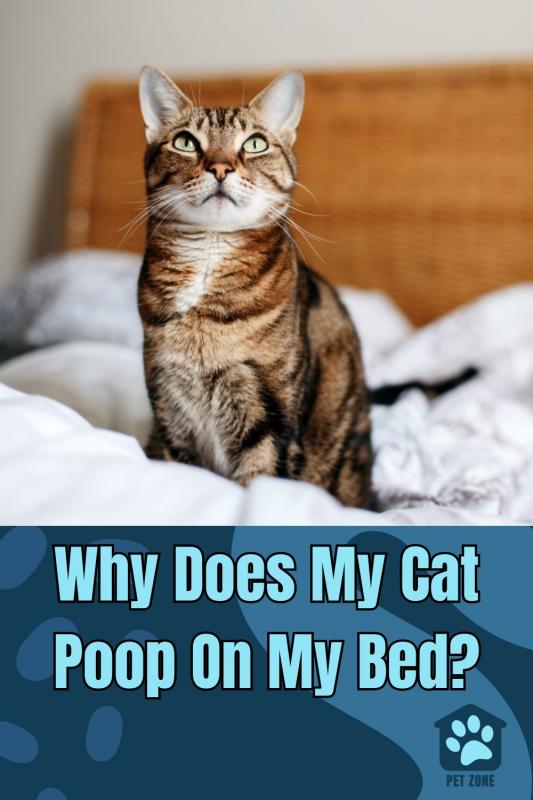


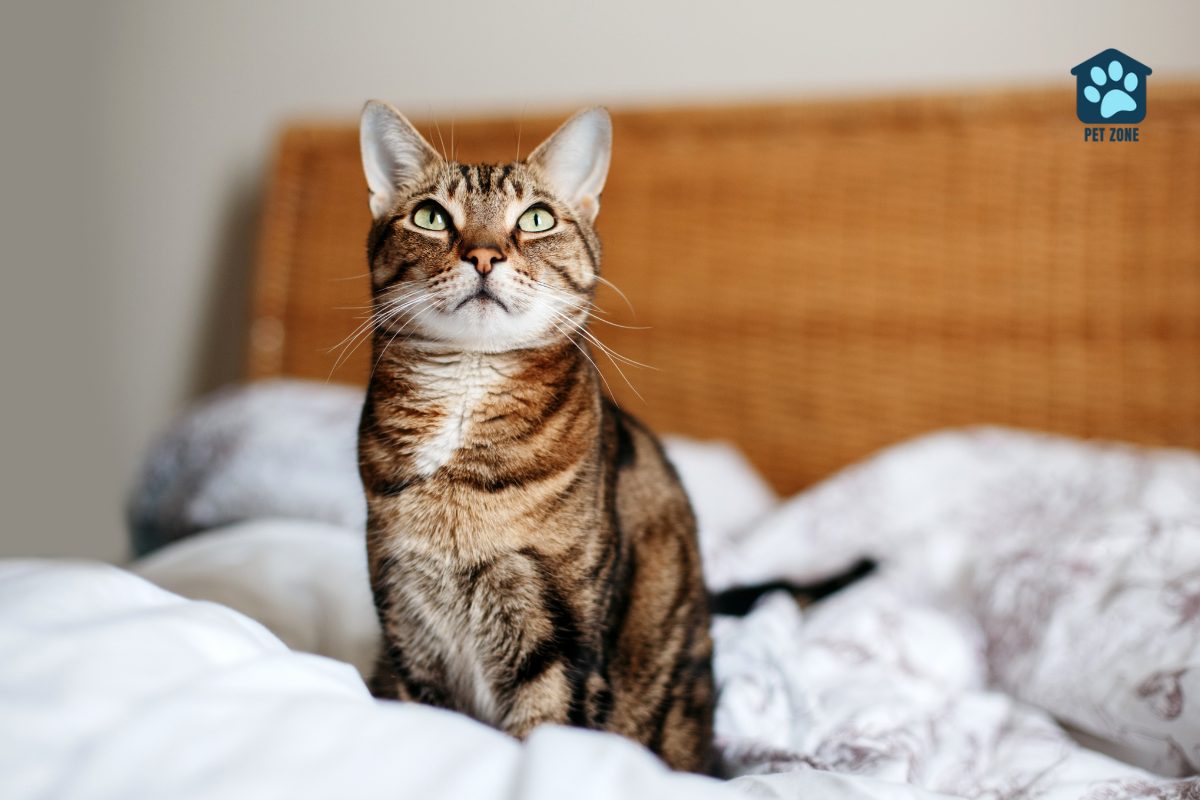
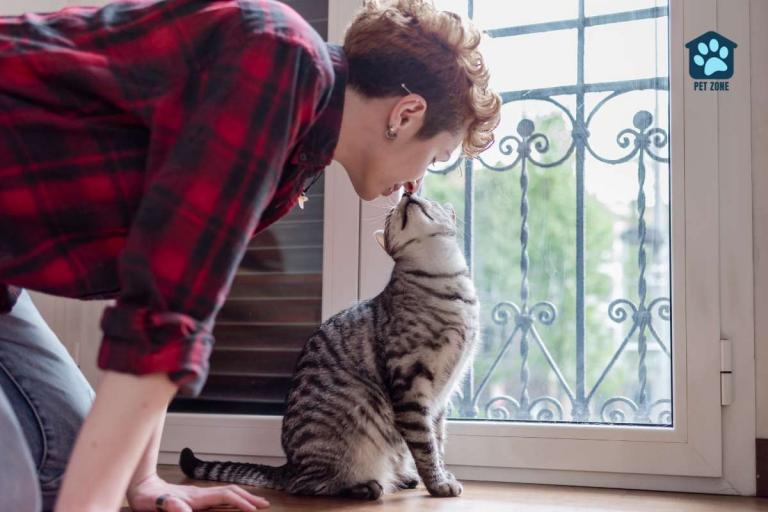

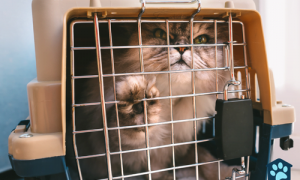
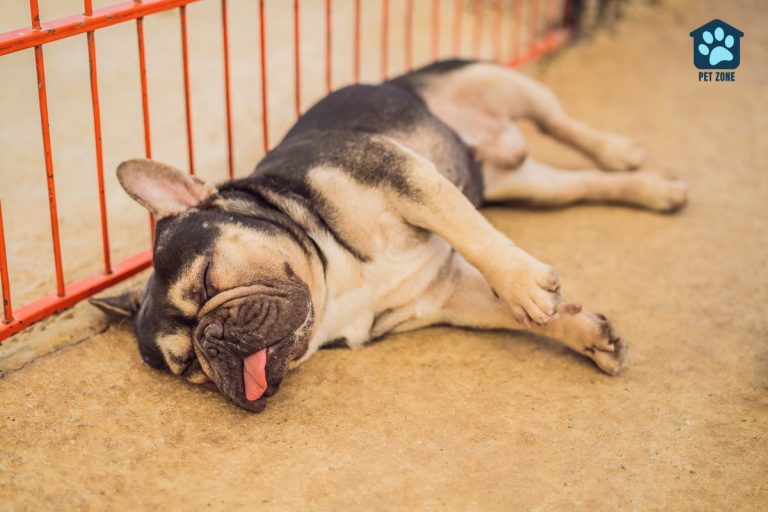
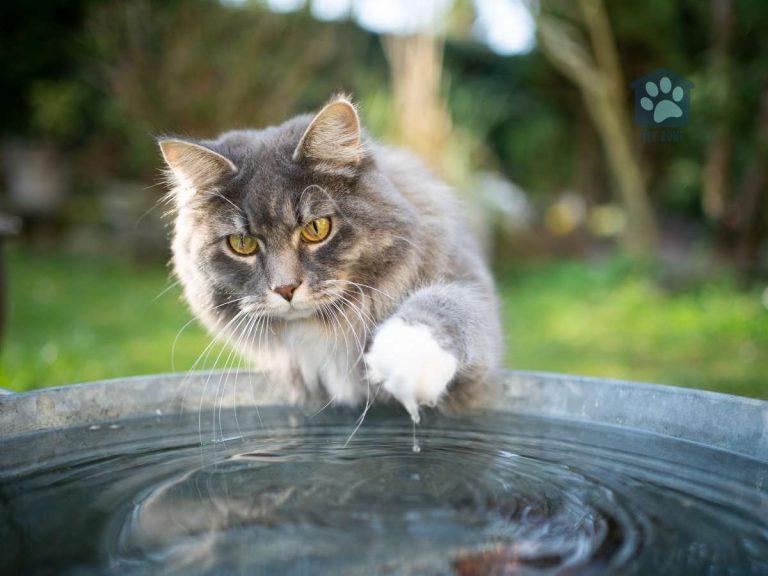
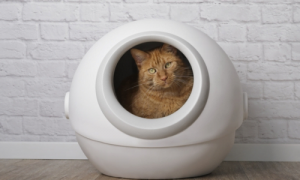
Well written! I love cats and it’s important to understand their behaviors.